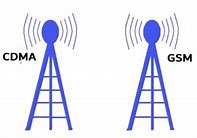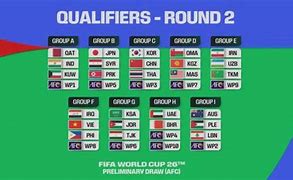
International competitions
Paket Vidio Platinum
2. Paket Vidio Platinum
Performance in international competition
With 48 continental trophies won, English clubs are the third-most successful in European football, behind Italy (50) and Spain (67). In the top-tier UEFA Champions League, a record six English clubs have won a total of 15 titles and lost a further 11 finals, behind Spanish clubs with 20 and 11, respectively.[120] In the second-tier UEFA Europa League, English clubs are third, with nine victories and eight losses in the finals.[121] In the former second-tier UEFA Cup Winners' Cup, English teams won a record eight titles and had a further five finalists.[122] In the non-UEFA organised Inter-Cities Fairs Cup, English clubs provided four winners and four runners-up, the second-most behind Spain with six and three, respectively.[123] In the newly created third-tier UEFA Conference League, English clubs have won a joint-record one title so far.[124] In the former fourth-tier UEFA Intertoto Cup, England won four titles and had a further final appearance, placing it fifth in the rankings, although English clubs were notorious for treating the tournament with disdain, either sending "B" squads or withdrawing from it altogether.[125][126][127] In the one-off UEFA Super Cup, England has ten winners and ten runners-up, the second-most behind Spain with 17 and 15, respectively.[128] Similarly to the Intertoto Cup, English teams did not take the former Intercontinental Cup seriously enough, despite its international status of the Club World Championship. They a made a total of six appearances in the one-off competition, winning only one of them, and withdrew a further three times.[129] English clubs have won the FIFA-organised Club World Cup four times, tied for the second-most with Brazil, and behind only Spain, with eight.[130][127]
After an inaugural season with no sponsorship, the Premier League was sponsored by Carling from 1993 until 2001, during which time it was known as the FA Carling Premiership. In 2001, a new sponsorship deal with Barclaycard saw the league rebranded the FA Barclaycard Premiership, which was changed to the FA Barclays Premiership in time for the 2004–05 season.
For the 2007–08 season, the league was rebranded the Barclays Premier League.[131][132]
Barclays' deal with the Premier League expired at the end of the 2015–16 season. The organisation announced on 4 June 2015 that it would not pursue any further title sponsorship deals for the Premier League, arguing that they wanted to build a "clean" brand for the competition more in line with those of major U.S. sports leagues.
As well as sponsorship for the league itself, the Premier League has a number of official partners and suppliers.[135] The official ball supplier for the league is Nike who have had the contract since the 2000–01 season when they took over from Mitre.[136] Under its Merlin brand, Topps held the licence to produce collectables for the Premier League between 1994 and 2019 including stickers (for their sticker album) and trading cards.[137] Launched in the 2007–08 season, Topps' Match Attax, the official Premier League trading card game, is the best selling boys collectable in the UK, and is also the biggest selling sports trading card game in the world.[137][138] In October 2018, Panini were awarded the licence to produce collectables from the 2019–20 season.[139] The chocolate company Cadbury has been the official snack partner of the Premier League since 2017, and sponsored the Golden Boot, Golden Glove and Playmaker of the Season awards from the 2017–18 season to 2019–20 season.[140][141] The Coca-Cola Company (under its Coca-Cola Zero Sugar product line) sponsored these awards during the 2020–21 season with Castrol being the current sponsor as of the 2021–22 season.[142]
The Premier League has the highest revenue of any association football league in the world, with total club revenues of €2.48 billion in 2009–10.[143][144] In 2013–14, due to improved television revenues and cost controls, the Premier League clubs collectively made a net profit in excess of £78 million, exceeding all other football leagues.[145] In 2010 the Premier League was awarded the Queen's Award for Enterprise in the International Trade category for its outstanding contribution to international trade and the value it brings to English football and the United Kingdom's broadcasting industry.[146]
The Premier League includes some of the richest football clubs in the world. Deloitte's "Football Money League" listed seven Premier League clubs in the top 20 for the 2009–10 season,[147] and all 20 clubs were in the top 40 globally by the end of the 2013–14 season, largely as a result of increased broadcasting revenue.[148] In 2019, the league generated around £3.1 billion per year in domestic and international television rights.[4]
Premier League clubs agreed in principle in December 2012, to radical new cost controls. The two proposals consist of a break-even rule and a cap on the amount clubs can increase their wage bill by each season. With the new television deals on the horizon, momentum has been growing to find ways of preventing the majority of the cash going straight to players and agents.[149]
Central payments for the 2016–17 season amounted to £2,398,515,773 across the 20 clubs, with each team receiving a flat participation fee of £35,301,989 and additional payments for TV broadcasts (£1,016,690 for general UK rights to match highlights, £1,136,083 for each live UK broadcast of their games and £39,090,596 for all overseas rights), commercial rights (a flat fee of £4,759,404) and a notional measure of "merit" which was based upon final league position.[8] The merit component was a nominal sum of £1,941,609 multiplied by each finishing place, counted from the foot of the table (e.g., Burnley finished 16th in May 2017, five places counting upwards, and received 5 × £1,941,609 = £9,708,045 merit payment).[8]
Since its split with the Football League, established clubs in the Premier League have a funding disparity from counterparts in lower leagues. Revenue from television rights between the leagues has played a part in this.[150]
Promoted teams have found it difficult to avoid relegation in their first Premier League season. One Premier League newcomer has been relegated back to the Football League every season, save the 2001–02, 2011–12, 2017–18 & 2022–23 seasons. In the 1997–98 and 2023–24 seasons, all three promoted clubs were relegated by the season's end.[151]
The Premier League distributes a portion of its television revenue as "parachute payments" to relegated clubs for adjustment to television revenue loss. The average Premier League team receives £41 million[152] whilst the average Championship club receives £2 million.[153] Starting with the 2013–14 season, these payments are in excess of £60 million over four seasons.[154] Critics maintain that the payments widen the gap between teams that have reached the Premier League and those that have not,[155] leading to the common occurrence of teams "bouncing back" soon after their relegation.
Clubs which have failed to win immediate promotion back to the Premier League have seen financial problems, in some cases administration or liquidation. Further relegations down the footballing ladder have occurred for multiple clubs unable to cope with the gap.[156][157]
Manchester City dominance (2020s)
From the 2019–20 season, video assistant referees were used in the league.[58] The 2019–20 season saw Liverpool win their first Premier League trophy, their first top-flight trophy in 30 years.[59]
Project Big Picture was announced in October 2020 that described a plan to reunite the top Premier League clubs with the English Football League, proposed by leading Premier League clubs Manchester United and Liverpool.[60] It has been criticised by the Premier League leadership and the UK government's Department for Culture, Media and Sport.[61]
On 26 April 2021, play was stopped during a match between Leicester City and Crystal Palace to allow players Wesley Fofana and Cheikhou Kouyaté to break Ramadan fast. It is believed to be the first time in Premier League history that a game was paused to allow Muslim players to eat and drink after the sun had set in accordance with the rules of the faith.[62]
The 2022–23 season was the first to take a six-week break between November and December 2022 to allow for the first winter World Cup,[63] with a return for the Boxing Day fixtures.[64] The Premier League players decided to take the knee at selected "significant moments". They assured to "remain resolutely committed to eradicate racial prejudice".[65] That season was notable for Newcastle United and Brighton & Hove Albion breaking the traditional "Big Six" as they finished fourth and sixth, respectively, whilst "Big Six" teams Tottenham and Chelsea finished eighth and twelfth.[66][67] Meanwhile, 2015–16 champions Leicester City were relegated, becoming the second league-winning club to suffer relegation since 1992, after Blackburn Rovers in the 2011–12 season.[68]
In the 2023–24 season, Manchester City won the Premier League for the sixth time in seven years to become the first top-flight team to win four consecutive league titles in English football history.[69] Meanwhile, non-Big Six club Aston Villa finished fourth and qualified for the 2024–25 UEFA Champions League.[70]
The Football Association Premier League Ltd (FAPL)[71][72][73] is operated as a corporation and is owned by the 20 member clubs. Each club is a shareholder, with one vote each on issues such as rule changes and contracts. The clubs select a chairman, chief executive, and board of directors to oversee the daily operations of the league.[74] The Football Association is not directly involved in the day-to-day operations of the Premier League, but has veto power as a special shareholder during the election of the chairman and chief executive and when new rules are adopted by the league.[75]
The current chief executive is Richard Masters, who was appointed in December 2019.[76] The chair is currently Alison Brittain, who took over the role in early 2023.[77]
The Premier League sends representatives to UEFA's European Club Association, the number of clubs and the clubs themselves chosen according to UEFA coefficients. For the 2023–24 season, the Premier League has 13 representatives in the Association: Arsenal, Aston Villa, Brighton & Hove Albion, Chelsea, Everton, Liverpool, Manchester City, Manchester United, Newcastle United, Nottingham Forest, Tottenham Hotspur, West Ham United, and Wolverhampton Wanderers.[78] The European Club Association is responsible for electing three members to UEFA's Club Competitions Committee, which is involved in the operations of UEFA competitions such as the Champions League and UEFA Europa League.[79]
Founding and Manchester United dominance (1990s)
At the close of the 1990–1991 season, a proposal was tabled for the establishment of a new league that would bring more money into the game overall. The Founder Members Agreement, signed on 17 July 1991, by the game's top-flight clubs, established the basic principles for setting up the FA Premier League.[35] The newly formed top division was to have commercial independence from the Football Association and the Football League, giving the FA Premier League licence to negotiate its own broadcast and sponsorship agreements. The argument given at the time was that the extra income would allow English clubs to compete with teams across Europe.[20] Although Dyke played a significant role in the creation of the Premier League, he and ITV (of which LWT was part) lost out in the bidding for broadcast rights: BSkyB won with a bid of £304 million over five years, with the BBC awarded the highlights package broadcast on Match of the Day.[31][33]
Luton Town, Notts County, and West Ham United were the three teams relegated from the old First Division at the end of the 1991–92 season, and did not take part in the inaugural Premier League season. They were replaced by Ipswich Town, Middlesbrough, and Blackburn Rovers, promoted from the old Second Division.[36] The 22 First Division clubs resigned en masse from the Football League in 1992, and on 27 May that year, the FA Premier League was formed as a limited company, working out of an office at the Football Association's then headquarters in Lancaster Gate.[20] The 22 inaugural members of the new Premier League were:[37]
This meant a break-up of the 104-year-old Football League that had operated until then with four divisions; the Premier League would operate with a single division and the Football League with three. There was no change in competition format; the same number of teams competed in the top flight, and promotion and relegation between the Premier League and the new First Division remained the same as the old First and Second Divisions, with three teams relegated from the league and three promoted.[28]
The league held its first season in 1992–93. It was composed of 22 clubs for that season (reduced to 20 in the 1995–96 season). The first Premier League goal was scored by Brian Deane of Sheffield United in a 2–1 win against Manchester United.[38]
Manchester United won the inaugural edition of the new league, ending a twenty-six year wait to be crowned champions of England. Bolstered by this breakthrough, United immediately became the competition's dominant team, winning seven of the first nine trophies, two League and FA Cup 'doubles' and a European treble, initially under a team of hardened veterans such as Bryan Robson, Steve Bruce, Paul Ince, Mark Hughes, and Eric Cantona, before Cantona, Bruce, and Roy Keane led a young, dynamic new team filled with the Class of 92, a group of young players including David Beckham who came through the Manchester United Academy.
Between 1993 and 1997, Blackburn Rovers and Newcastle United came close to challenging Manchester United's early dominance; Blackburn won the 1994–95 FA Premier League and Newcastle led the title charge over United for much of the 1995–96 season. As the decade closed, Arsenal replicated Manchester United's dominance by winning the League and FA Cup double in 1997–98, and together they would form a duopoly over the league between 1997 and 2003.
A. Cara Berlangganan Vidio dari Aplikasi
Criticism of governance
The Premier League has faced criticism of its governance due to an alleged lack of transparency and accountability.
Following the Premier League's blocking of the attempted takeover of Newcastle United by a PIF-backed consortium through the league's Owners' and Directors' test, many MPs, Newcastle United fans and related parties to the deal denounced the Premier League for its perceived lack of transparency and accountability throughout the process.[80][81][82] On 6 July 2021, consortium member Amanda Staveley of PCP Capital Partners said that "fans surely deserve absolute transparency from the regulators across all their processes – to best ensure that they act responsibly. They (the Premier League) are performing a function like that of a government regulator – but without the same systems for accountability."[82]
On 22 July 2021, Tracey Crouch MP – chair of the fan-led review into the UK's football governance – announced in the review's interim findings that the Premier League had "lost the trust and confidence" of fans. The review also recommended that a new independent regulator be created to oversee matters such as club takeovers.[83][84]
Premier League chief executive Richard Masters had earlier spoken out against the implementation of an independent regulator, saying in May 2021, "I don't think that the independent regulator is the answer to the question. I would defend the Premier League's role as regulator of its clubs over the past 30 years."[85]
[The Premier League] is very tough and is different. If you compare this league to another league, it's like playing another sport.
In [The Premier League] you never really know what is going to happen, there is very little between the teams.
There are 20 clubs in the Premier League. During the course of a season (from August to May) each club plays the others twice (a double round-robin system), once at their home stadium and once at that of their opponents, for 38 games. Teams receive three points for a win and one point for a draw. No points are awarded for a loss. Teams are ranked by total points, then goal difference, and then goals scored. If still equal, teams are deemed to occupy the same position. If there is a tie for the championship, for relegation, or for qualification to other competitions, the head-to-head record between the tied teams is taken into consideration (points scored in the matches between the teams, followed by away goals in those matches.) If two teams are still tied, a play-off match at a neutral venue decides rank.[88]
A system of promotion and relegation exists between the Premier League and the EFL Championship. The three lowest placed teams in the Premier League are relegated to the Championship, and the top two teams from the Championship promoted to the Premier League,[89] with an additional team promoted after a series of play-offs involving the third, fourth, fifth and sixth placed clubs.[90] The number of clubs was reduced from 22 to 20 in 1995, when four teams were relegated from the league and only two teams promoted.[91][92] The top flight had only been expanded to 22 teams at the start of the 1991–92 season – the year prior to the formation of the Premier League.[92]
On 8 June 2006, FIFA requested that all major European leagues, including Italy's Serie A and Spain's La Liga, be reduced to 18 teams by the start of the 2007–08 season. The Premier League responded by announcing their intention to resist such a reduction.[93] Ultimately, the 2007–08 season kicked off again with 20 teams.[94]
United Kingdom and Ireland
Television has played a major role in the history of the Premier League. The League's decision to assign broadcasting rights to Sky in 1992 was at the time a radical decision, but one that has paid off. At the time, paid television was an almost untested proposition in the UK market as was charging fans to watch live televised football. However, a combination of Sky's strategy, the quality of Premier League football and the public's appetite for the game has seen the value of the Premier League's TV rights soar.[25]
The Premier League sells its television rights on a collective basis. This is in contrast to some other European leagues, including La Liga, in which each club sells its rights individually, leading to a much higher share of the total income going to the top few clubs.[159] The money is divided into three parts:[160] half is divided equally between the clubs; one quarter is awarded on a merit basis based on final league position, the top club getting twenty times as much as the bottom club, and equal steps all the way down the table; the final quarter is paid out as facilities fees for games that are shown on television, with the top clubs generally receiving the largest shares of this. The income from overseas rights is divided equally between the twenty clubs.[161]
Not all Premier League matches are televised in the United Kingdom, as the league upholds the long-standing prohibition on telecasts of any association football match (domestic or otherwise) that kicks off between 2:45 p.m. and 5:15 p.m. on Saturday matchdays.[162][163][164]
The first Sky television rights agreement was worth £304 million over five seasons.[165] The next contract, negotiated to start from the 1997–98 season, rose to £670 million over four seasons.[165] The third contract was a £1.024 billion deal with BSkyB for the three seasons from 2001 to 2004. The league brought in £320 million from the sale of its international rights for the three-year period from 2004 to 2007. It sold the rights itself on a territory-by-territory basis.[166] Sky's monopoly was broken from August 2006 when Setanta Sports was awarded rights to show two out of the six packages of matches available. This occurred following an insistence by the European Commission that exclusive rights should not be sold to one television company. Sky and Setanta paid £1.7 billion, a two-thirds increase which took many commentators by surprise as it had been widely assumed that the value of the rights had levelled off following many years of rapid growth. Setanta also hold rights to a live 3 pm match solely for Irish viewers. The BBC retained the rights to show highlights for the same three seasons (on Match of the Day) for £171.6 million, a 63 per cent increase on the £105 million it paid for the previous three-year period.[167] Sky and BT Group (via its new channel BT Sport, now TNT Sports) agreed to jointly pay £84.3 million for delayed television rights to 242 games (that is the right to broadcast them in full on television and over the internet) in most cases for a period of 50 hours after 10 p.m. on matchday.[168] Overseas television rights fetched £625 million, nearly double the previous contract.[169] The total raised from those deals was more than £2.7 billion, giving Premier League clubs an average media income from league games of around £40 million-a-year from 2007 to 2010.[170]
The TV rights agreement between the Premier League and Sky faced accusations of being a cartel, and a number of court cases arose as a result.[171] An investigation by the Office of Fair Trading in 2002 found BSkyB to be dominant within the pay TV sports market, but concluded that there were insufficient grounds for the claim that BSkyB had abused its dominant position.[172] In July 1999 the Premier League's method of selling rights collectively for all member clubs was investigated by the UK Restrictive Practices Court, which concluded that the agreement was not contrary to the public interest.[173]
The BBC's highlights package on Saturday and Sunday nights, as well as other evenings when fixtures justify, ran until 2016.[174] Television rights alone for the period 2010 to 2013 were purchased for £1.782 billion.[175] On 22 June 2009, due to troubles encountered by Setanta Sports after it failed to meet a final deadline over a £30 million payment to the Premier League, ESPN was awarded two packages of UK rights containing 46 matches that were available for the 2009–10 season as well as a package of 23 matches per season from 2010 to 2013.[176] On 13 June 2012, the Premier League announced that BT had been awarded 38 games a season for the 2013–14, 2014–15 and 2015–16 seasons at £246 million-a-year. The remaining 116 games were retained by Sky, which paid £760 million-a-year. The total domestic rights raised £3.018 billion, an increase of 70.2% over the 2010–11 to 2012–13 rights.[177] The value of the licensing deal rose by another 70.2% in 2015, when Sky and BT paid £5.136 billion to renew their contracts with the Premier League for another three years up to the 2018–19 season.[178]
A new rights cycle began in the 2019–20 season, with the domestic package increasing to 200 matches overall; in February 2018, BT were awarded the package of 32 lunchtime fixtures on Saturdays, whilst Sky was awarded four of the seven packages, covering the majority of weekend fixtures (including eight new prime time fixtures on Saturdays), as well as Monday and Friday matches. Two remaining packages of 20 fixtures each were to be sold at a later date, including three rounds of mid-week fixtures and a bank holiday round. As Sky already owned the maximum number of matches it could hold without breaching a 148-match cap, it was speculated that at least one of the new packages could go to a new entrant, such as a streaming service. The five packages sold to BT and Sky were valued at £4.464 billion.[179] In June 2018, it was announced that Amazon Prime Video and BT had acquired the remaining two packages; Amazon acquired rights to 20 matches per-season, covering a mid-week round in December, and all Boxing Day fixtures.[180] The Amazon telecasts are produced in association with Sunset + Vine and BT Sport.[181]
With the resumption of play in the 2019–20 Premier League due to the COVID-19 pandemic in the United Kingdom, the Premier League announced that all remaining matches would be carried on British television, split primarily across Sky, BT, and Amazon. A large number of these matches were also scheduled for free-to-air broadcasts, with Sky airing 25 on Pick, Amazon streaming its four matches on Twitch, and the BBC – for the first time in league history – carrying four live matches.[182][183][184][185]
As matches would continue to be played without spectators upon the start of the 2020–21 Premier League, its clubs voted on 8 September to continue broadcasting all matches through at least September (with the BBC and Amazon each holding one additional match), and "appropriate arrangements" being made for October.[186][187] It was later announced that matches not selected for broadcast would be carried on pay-per-view via BT Sport Box Office and Sky Box Office at a cost of £14.95 per-match. The PPV scheme was poorly received; the Football Supporters' Federation felt that the price was too high, and there were concerns that it could encourage piracy. There were calls from supporters to boycott the pay-per-views, and make donations to support charitable causes instead (with Newcastle's "Charity Not PPV" campaign raising £20,000 for a local food bank, and Arsenal fans raising £34,000 for Islington Giving). On 13 November, amid the reintroduction of measures across the UK, the Premier League officially announced that the non-televised matches would be assigned to its main broadcast partners, and again including additional matches for the BBC and Amazon Prime.[188][189][190][191]
The next cycle of rights between 2022–23 and 2024–25 season was renewed without tender due to compelling and exceptional circumstances in light of the COVID-19 pandemic. Therefore, rights remained as they were since the 2019–20 season.[192]
In August 2016, it was announced the BBC would be creating a new magazine-style show for the Premier League entitled The Premier League Show.[193]
The Premier League is the most-watched football league in the world, broadcast in 212 territories to 643 million homes and a potential TV audience of 4.7 billion people.[9] The Premier League's production arm, Premier League Productions, is operated by IMG Productions and produces content for its international television partners.[194] On 22 November 2024, the Premier League announced plans to end its agreement with IMG and take Premier League Productions in-house beginning in 2026–27.[195]
The Premier League is the most widely distributed sports programme in Asia.[196] In the Indian subcontinent, the matches are broadcast live on STAR Sports.[197] In MENA region, BeIN Sports holds exclusive rights to the Premier League.[198] In China, the broadcast rights were awarded to iQiyi, Migu and CCTV that began in the 2021–22 season.[199][200][201] SCTV broadcast the matches for Indonesia, and Astro for Malaysia. In Australia, Optus telecommunications holds exclusive rights to the Premier League, providing live broadcasts and online access (Fox Sports formerly held rights).[202] As of the 2022–23 season, Canadian media rights to the Premier League are owned by FuboTV,[203] after having been jointly owned by Sportsnet and TSN, and most recently DAZN.[204]
The Premier League is broadcast in the United States by NBC Sports, a division of Sky parent Comcast.[205] Acquiring the rights to the Premier League in 2013 (replacing Fox Soccer and ESPN), NBC Sports has been widely praised for its coverage.[206][207][208] NBC Sports reached a six-year extension with the Premier League in 2015 to broadcast the league until the end of the 2021–22 season in a deal valued at $1 billion (£640 million).[209][210] In November 2021, NBC reached another six-year extension through 2028 in a deal valued at $2.76 billion (£2 billion).[211][212]
The Premier League is broadcast by SuperSport across sub-Saharan Africa.[213] Broadcasters to continental Europe until 2025 include Canal+ for France,[214] Sky Sport Germany for Germany and Austria,[215] Match TV for Russia,[216] Sky Sport Italy for Italy,[217] Eleven Sports for Portugal,[218] DAZN for Spain,[219] beIN Sports Turkey to Turkey,[220] Digi Sport for Romania,[221] and NENT to Nordic countries (Sweden, Denmark and Norway),[222] Poland and the Netherlands.[223] In South America, ESPN covers much of the continent,[224] with coverage in Brazil shared between ESPN Brasil and ESPN4.[225][226] Paramount+ broadcasts the league in Central America.[227]
As of the 2023–24 season, Premier League football has been played in 61 stadiums since the formation of the division.[228] The Hillsborough disaster in 1989 and the subsequent Taylor Report saw a recommendation that standing terraces should be abolished. As a result, all stadiums in the Premier League are all-seater.[229][230] Since the formation of the Premier League, football grounds in England have seen constant improvements to capacity and facilities, with some clubs moving to new-build stadiums.[231] Eleven stadiums that have seen Premier League football have now been demolished. The stadiums for the 2023–24 season show a large disparity in capacity. For example, Old Trafford, the home of Manchester United, has a capacity of 74,031 whilst Dean Court, the home of Bournemouth, has a capacity of 11,307. The combined total capacity of the Premier League in the 2023–24 season is 787,002 with an average capacity of 39,350.
Stadium attendances are a significant source of regular income for Premier League clubs.[232] For the 2022–23 season, average attendances across the league clubs were 40,235 for Premier League matches with an aggregate attendance of 15,289,340.[233] This represents an increase of 19,109 from the average attendance of 21,126 recorded in the Premier League's first season (1992–93).[234] However, during the 1992–93 season, the capacities of most stadiums were reduced as clubs replaced terraces with seats in order to meet the Taylor Report's 1994–95 deadline for all-seater stadiums.[235][236] The 2022–23 season also set a competition record for total attendance with more than 15 million spectators, with average attendance also reaching record levels, surpassing the previous record of 39,989 set in the 2021–22 season, which in turn broke over 70 years old record set in 1948–49 season.[237]
In October 2024 it was reported that the government is planning to grant the independent regulator authority to stop Premier League clubs from selling their stadiums to affiliated or third-party companies.[238]
I have never known this level before. Of course, there are managers in Germany, Italy, and Spain, but in the Premier League, these are the best managers, the elite managers. The quality, the preparation. The level is so high.
Managers in the Premier League are involved in the day-to-day running of the team, including the training, team selection and player acquisition. Their influence varies from club-to-club and is related to the ownership of the club and the relationship of the manager with fans.[240] Managers are required to have a UEFA Pro Licence which is the final coaching qualification available, and follows the completion of the UEFA 'B' and 'A' Licences.[241] The UEFA Pro Licence is required by every person who wishes to manage a club in the Premier League on a permanent basis (i.e., more than 12 weeks, the amount of time an unqualified caretaker manager is allowed to take control).[242] Caretaker appointments are managers that fill the gap between a managerial departure and a new appointment. Several caretaker managers have gone on to secure a permanent managerial post after performing well as a caretaker, including Paul Hart at Portsmouth, David Pleat at Tottenham Hotspur and Ole Gunnar Solskjær at Manchester United.
Arsène Wenger is the longest-serving manager, having been in charge of Arsenal in the Premier League from 1996 to his departure at the conclusion of the 2017–18 season, and holds the record for most matches managed in the Premier League with 828, all with Arsenal. He broke the record set by Alex Ferguson, who had managed 810 matches with Manchester United from the Premier League's inception to his retirement at the end of the 2012–13 season. Ferguson was in charge of Manchester United from November 1986 until his retirement at the end of the 2012–13 season, meaning he was manager for the last five years of the old Football League First Division and all of the first 21 seasons of the Premier League.[243]
Notably, since its creation the Premier League has never been won by an English manager.
There have been several studies into the reasoning behind, and effects of, managerial sackings. Most famously, Sue Bridgewater of the University of Liverpool and Bas ter Weel of the University of Amsterdam, performed two separate studies which helped to explain the statistics behind managerial sackings. Bridgewater's study found clubs generally sack their managers upon dropping below an average of one point per match.[244]
Transfer regulations and foreign players
Player transfers may only take place within transfer windows set by the Football Association. The two transfer windows run from the last day of the season to 31 August and from 31 December to 31 January. Player registrations cannot be exchanged outside these windows except under specific licence from the FA, usually on an emergency basis.[246] As of the 2010–11 season, the Premier League introduced new rules mandating that each club must register a maximum 25-man squad of players aged over 21, with the squad list only allowed to be changed in transfer windows or in exceptional circumstances.[247][248] This was to enable the "home grown" rule to be enacted, whereby the Premier League would also from 2010 require at least eight members of the named 25-man squad to be "home-grown players".[247]
At the inception of the Premier League in 1992–93, just 11 players named in the starting line-ups for the first round of matches hailed from outside of the United Kingdom or Ireland.[249] By 2000–01, the number of foreign players participating in the Premier League was 36% of the total. In the 2004–05 season, the figure had increased to 45%. On 26 December 1999, Chelsea became the first Premier League side to field an entirely foreign starting line-up,[250] and on 14 February 2005, Arsenal were the first to name a completely foreign 16-man squad for a match.[251] By 2009, under 40% of the players in the Premier League were English.[252] By February 2020, 117 different nationalities had played in the Premier League, and 101 nationalities had scored in the competition.[253]
In 1999, in response to concerns that clubs were increasingly passing over young English players in favour of foreign players, the Home Office tightened its rules for granting work permits to players from countries outside of the European Union.[254] A non-EU player applying for the permit must have played for his country in at least 75 per cent of its competitive 'A' team matches for which he was available for selection during the previous two years, and his country must have averaged at least 70th place in the official FIFA world rankings over the previous two years. If a player does not meet those criteria, the club wishing to sign him may appeal.[255]
Following the implementation of Brexit in January 2021, new regulations were introduced which require all foreign players to obtain a Governing Body Endorsement (GBE) in order to play football in the United Kingdom, regardless of EU status.[256]
Italics denotes players still playing professional football,Bold denotes players still playing in the Premier League.
The Premier League Golden Boot is awarded each season to the top scorer in the division. Former Blackburn Rovers and Newcastle United striker Alan Shearer holds the record for most Premier League goals with 260.[258] Thirty-three players have reached the 100-goal mark.[259] Since the first Premier League season in 1992–93, 23 players from 11 clubs have won or shared the top scorer title.[260] Thierry Henry won his fourth overall scoring title by scoring 27 goals in the 2005–06 season. Erling Haaland holds the record for most goals in a Premier League season (38 matches) with 36 goals as of 15 May 2023.[261] Ryan Giggs of Manchester United holds the record for scoring goals in consecutive seasons, having scored in the first 21 seasons of the league.[262] Giggs also holds the record for the most Premier League assists, with 162.[263]
There is no team or individual salary cap in the Premier League. As a result of the increasingly lucrative television deals, player wages rose sharply following the formation of the Premier League, when the average player wage was £75,000 per year.[264] In the 2018–19 season the average annual salary stood at £2.99 million.
The total salary bill for the 20 Premier League clubs in the 2018–19 season was £1.62 billion; this compares to £1.05 billion in La Liga, £0.83 billion in Serie A, £0.72 billion in Bundesliga, and £0.54 billion in Ligue 1. The club with the highest average wage is Manchester United at £6.5 million. This is smaller than the club with the highest wage bill in Spain (Barcelona £10.5 million) and Italy (Juventus £6.7 million), but higher than in Germany (Bayern Munich £6.4 million) and France (Paris Saint-Germain £6.1 million). For the 2018–19 season, the ratio of the wages of the highest-paid team to lowest-paid in the Premier League is 6.82 to 1. This is much lower than in La Liga (19.1 to 1), Serie A (16 to 1), Bundesliga (20.5 to 1), and Ligue 1 (26.6 to 1). Because of the lower differential between team wage bills in the Premier League, it is often regarded as being more competitive than other top European leagues.[265]
The record transfer fee for a Premier League player has risen steadily over the lifetime of the competition. Before the start of the first Premier League season, Alan Shearer became the first British player to command a transfer fee of more than £3 million.[266] The record has increased steadily and Enzo Fernández is now the most expensive transfer fee paid by a Premier League club at £106.8 million, whilst Philippe Coutinho is the biggest transfer involving a Premier League club at £105 million.
The Premier League maintains two trophies – the genuine trophy (held by the reigning champions) and a spare replica. Two trophies are held for the purpose of making the award within minutes of the title being secured, in the event that on the final day of the season two clubs are still within reach of winning the League.[293] In the rare event that more than two clubs are vying for the title on the final day of the season, a replica won by a previous club is used.[294]
The current Premier League trophy was created by Royal Jewellers Garrard & Co/Asprey of London and was designed in house at Garrard & Co by Trevor Brown and Paul Marsden. It consists of a trophy with a golden crown and a malachite plinth base. The plinth weighs 33 pounds (15 kg) and the trophy weighs 22 pounds (10.0 kg).[295] The trophy and plinth are 76 cm (30 in) tall, 43 cm (17 in) wide and 25 cm (9.8 in) deep.[296]
Its main body is solid sterling silver and silver gilt, whilst its plinth is made of malachite, a semi-precious stone. The plinth has a silver band around its circumference, upon which the names of the title-winning clubs are listed. The green of the malachite represents the green field of play.[296] The design of the trophy is based on the heraldry of Three Lions that is associated with English football. Two of the lions are found above the handles on either side of the trophy – the third is symbolised by the captain of the title-winning team as he raises the trophy, and its gold crown, above his head at the end of the season.[297] The ribbons that drape the handles are presented in the team colours of the league champions that year. In 2004, a special gold version of the trophy was commissioned to commemorate Arsenal winning the title without a single defeat.[298]
Video Assistant Referee
Video assistant referee (VAR), was introduced to the Premier League at the beginning of the 2019–20 season. It uses technology and officials to assist the referee in making decisions on the pitch.[95] However, its use has been met with mixed receptions from fans and pundits, with some praising its accuracy whilst others criticise its impact on the flow of the game and consistency of decision-making.
The on-field referee still makes the final decision, but VAR can assist the referee in the decision-making process. VAR can only be used for four types of decisions: goals, penalty decisions, direct red card incidents, and cases of mistaken identity. VAR officials review the video footage and communicate with the on-field referee via a headset. The VAR officials are located in a central control room, which is equipped with multiple camera angles and the ability to replay footage at various speeds.
A study evaluating fan reception of VAR in the Premier League was made by Otto Kolbinger and Melanie Knopp and was done by analysing Twitter data.[96] The researchers used sentiment analysis to measure the overall positive or negative attitudes towards VAR, as well as topic modelling to identify specific issues that fans are discussing related to VAR. The study found that the reception of VAR on Twitter is largely negative, with fans expressing frustration and criticism of the technology's impact on the flow of the game and the inconsistency of decisions. The researchers also identified specific issues, such as handball and offside decisions, that fans are particularly critical of. The study concludes that VAR has not been well received by fans in the Premier League, and that efforts to improve the technology and increase transparency in decision-making are needed to address these concerns.
Fifty-one clubs have played in the Premier League from its inception in 1992, up to and including the 2023–24 season.[97]
Titles won by club (%)
Manchester United– 13 (40.6%)
Manchester City - 8 (25.0%)
Blackburn Rovers - 1 (3.1%)
Leicester City - 1 (3.1%)
Italics indicate former Premier League champions that are currently outside the Premier League.
Twenty clubs are competing in the 2024–25 season – top seventeen from the previous season and three promoted from the Championship.
In 2011, after Swansea City gained promotion, a Welsh club participated in the Premier League for the first time.[98][99] The first Premier League match to be played outside England was Swansea City's home match at the Liberty Stadium against Wigan Athletic on 20 August 2011.[100] The number of Welsh clubs in the Premier League increased to two in 2013–14, as Cardiff City gained promotion,[101] but they were relegated after their maiden season.[102] Cardiff were promoted again in 2017–18 but the number of Welsh clubs remained the same for the 2018–19 Premier League season, as Swansea City had been relegated from the Premier League in 2017–18.[103] Following Cardiff City's relegation after the 2018–19 season, there are currently no Welsh clubs participating in the Premier League.[104]
Because they are members of the Football Association of Wales (FAW), the question of whether clubs like Swansea should represent England or Wales in European competitions has caused long-running discussions in UEFA. Swansea took one of England's three available places in the Europa League in 2013–14 by winning the League Cup in 2012–13.[105] The right of Welsh clubs to take up such English places was in doubt until UEFA clarified the matter in March 2012, allowing them to participate.[106]
Participation in the Premier League by some Scottish or Irish clubs has sometimes been discussed, but without result. The idea came closest to reality in 1998, when Wimbledon received Premier League approval to relocate to Dublin, Ireland, but the move was blocked by the Football Association of Ireland.[107][108][109][110] Additionally, the media occasionally discusses the idea that Scotland's two biggest teams, Celtic and Rangers, should or will take part in the Premier League, but nothing has come of these discussions.[111]
